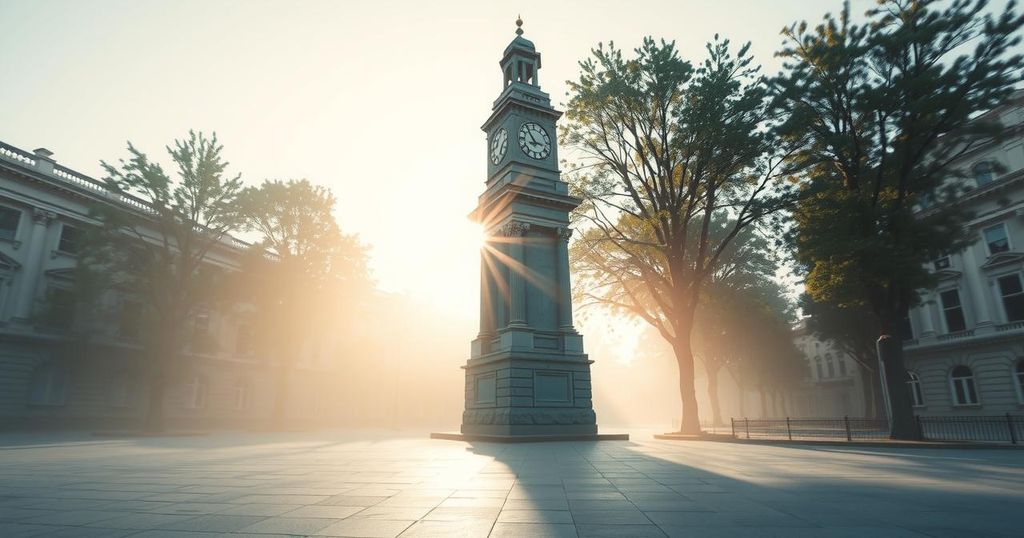Lebanon commemorates Rafic Hariri’s assassination 20 years later amid shifting political dynamics that weaken Hezbollah and possibly bolster Saad Hariri’s political future. A UN court sentenced Hezbollah members for their role in the assassination, yet tensions persist as Lebanese politics evolve, reflecting international interests and local alliances.
On February 14, 2025, Lebanon commemorated the 20th anniversary of former Prime Minister Rafic Hariri’s assassination. This event coincides with significant political shifts in the country, particularly the diminishing influence of Hezbollah and the potential resurgence of Hariri’s son, Saad. Rafic Hariri, instrumental in Lebanon’s post-civil war reconstruction, had stepped down as premier shortly before his death.
In 2022, a UN-backed tribunal sentenced two Hezbollah members to life imprisonment in connection with Hariri’s assassination and the deaths of 21 others; however, Hezbollah has not complied with the demands to surrender them. Saad Hariri, who served three terms as prime minister, has returned from the United Arab Emirates to participate in this year’s memorial. His return marks a significant moment in a notably altered political landscape.
The anniversary comes just ahead of a critical deadline for the Hezbollah-Israel ceasefire that concluded a year of conflict, which had notably weakened Hezbollah. Tensions surrounding this truce heightened when Beirut declined Israel’s request to maintain military presence in certain southern locations. Despite this, Hezbollah remains a formidable force, evidenced by recent protests blocking access to the airport following the prohibition of two Iranian flights.
At the memorial event, several thousand supporters of Rafic Hariri gathered at his burial site, expressing mixed emotions of hope and remembrance. A supporter expressed joy at the Syrian regime’s decline and the presence of Sheikh Saad, highlighting public enthusiasm for potential leadership changes. There are indications that Saad Hariri may soon address key developments in Lebanon’s political arena.
Saad Hariri’s political trajectory has been complicated by shifting international alliances and local political dynamics. Once a favored leader backed by Saudi Arabia, his relationship with the kingdom soured due to his conciliatory approach towards Hezbollah. Following nationwide protests in 2019, he suspended his political activities, citing Iran’s growing influence in Lebanon as a key factor.
In the context of weakened positions for Hezbollah, further political developments have emerged. Joseph Aoun, a former army chief perceived as supported by the United States and Saudi Arabia, was elected president earlier this year. The newly formed government, led by Prime Minister Nawaf Salam, marks another shift, with Riyadh now showing renewed interest in Lebanese politics, seeking a united Sunni leadership.
The anniversary serves as a strategic moment for Saad Hariri to evaluate and possibly regain his influence within the Sunni community, as his father’s legacy and assassination continue to resonate in Lebanon’s political discourse. As Hezbollah attempts to demonstrate its stability amidst political rivalries, recent tensions have underscored the complexity of Lebanon’s political landscape, with ongoing adjustments in power dynamics.
The 20th anniversary of Rafic Hariri’s assassination has emerged as a catalyst for significant shifts in Lebanon’s political landscape. With Hezbollah’s diminishing power and the talk of Saad Hariri’s potential political return, the situation suggests that Lebanon may be on the brink of new leadership and a possible restoration of Sunni unity in governance. The evolving dynamics call for careful observation in the coming months.
Original Source: www.arabnews.com






